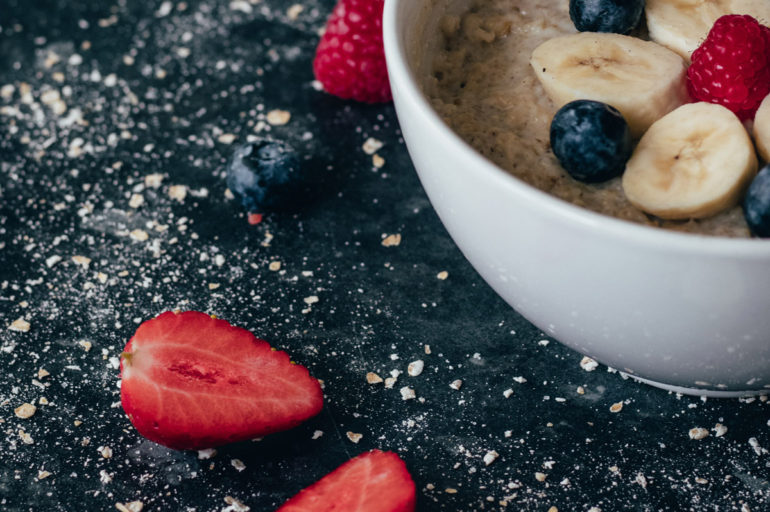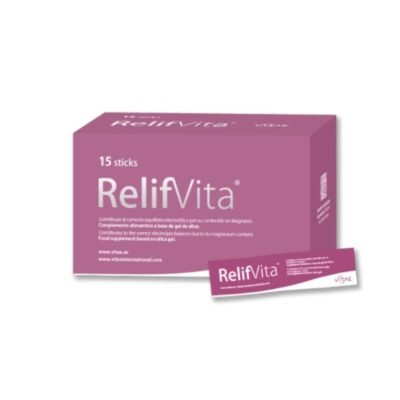Flatulence? Bloating? Heaviness after eating? Does it sound familiar to you? Christmas is around the corner and with it countless meals that may cause you digestive discomfort. We invite you to discover the wonderful world of digestive enzymes and their power to improve digestions. It is important to mention that whenever the problem is chronic and recurrent, it is necessary to visit a healthcare professional to study the case in detail. We spoke with Fran Ballesteros, pharmacist and Vitae educator, about digestive enzymes and the digestion process.
Let’s start with an easy question, what happens in our body when we eat?
The main goal of eating is to obtain nutrients for our body and that is why it is fundamental to process food from the very first moment it is ingested. We can talk about 3 different types of processing: a mechanical processing (the grinding of food with the teeth, or the peristaltic movement of mixing the stomach and intestine), a chemical processing (the acidic pH of the stomach that promotes the breakdown of chemical bonds, enzymatic processes at the intestinal level), and finally a biological processing (our intestinal microbiota that favors digestion and absorption of certain nutrients such as minerals and vitamins).
Why do we feel bad if we eat too much or we eat foods that are difficult to digest?
At the intestinal level, we are only going to absorb those nutrients that reach the small intestine so highly processed that we are able absorb them. Anything that we cannot digest, either due to a lack of prior processing (poor chewing, gastric acid or pepsin deficiency, enzyme deficiency, etc.) or because we have ingested excessively and, although we do not have any digestive problems, we cannot process, it will not be able to be absorbed properly, and therefore it will be eliminated through the feces. This process implies more work for our digestive system with the consequent discomfort of heaviness, bloating, etc.
It can also depend on the type of food: fats are the ones that will have a slower gastric emptying (they will take longer to disappear from the stomach), so a large rich in fats will always cause more discomfort than a light meal with easily nutrients that are easy to process and digest.
Why does flatulence, bloating, reflux, slow digestion, etc appear …?
All these symptoms that you mention can have different causes, so each case in particular should be studied. However, something very common is the realization of “partial digestions”. That is, either because our digestive system is altered (and therefore also our digestion process) or because we eat large quantities of foods that are difficult to digest, it may happen that at the stomach level we need a greater production of acid to process the food intake (with consequent hyperacidity, reflux and burning).
On the other hand, food, by not being processed well at the stomach level, can reach the intestine partially processed, where our microbiota will have to work overtime to digest, which causing fermentation-type processes instead of digestive. Fermentation, as we all know, produces gas, which swell the digestive tract, with the consequent discomfort of bloating, flatulence, etc.
What role do digestive enzymes play during the digestion process?
Digestive enzymes play a key role during the digestive process. These are proteins that will break chemical bonds in order to make food more digestible. It is not the same for our intestines to absorb a whole protein than a short peptide or even an isolated amino acid.
We have different enzymes in the digestive tract that help us process and digest different type of nutrients. It may happen that we have poor digestions due to a deficit of enzymes, so the use of food supplements based on digestive enzymes will facilitate the digestion process.
Vitae has a probiotic combined with digestive enzymes called Vitadigest with digestive enzymes, tell us a little more about it.
Vitadigest with digestive enzymes is a very complete product since it will help us in the digestion process. On one hand, it has 4 enzymes that favor the digestion of different nutrients such as proteins (protease), carbohydrates (amylase), fats (lipase) and a very specific one that helps us digest lactose and milk sugar (lactase). With these four enzymes we will improve the chemical digestion of food, in such a way that we promote its absorption without exhausting our microbiota.
In addition, to improve the biological digestion process, Vitadigest with digestive enzymes incorporates 3 bacterial strains present physiologically in the human intestine, L. gasseri, B. bifidum and B. longum, which will be in charge of improving all processes during the microbiological digestion of food. They will also be responsible for populating our intestine with beneficial bacteria, reducing all the symptoms associated with poor digestion such as flatulence, bloating, abdominal pain, etc.
To sum up, it improves digestion and thanks to the digestive enzymes, the nutrients arrive more processed and that is why we eliminate the fermentation processes (main cause of digestive discomfort).
If we are having a large meal, would it be good to support our digestion process with a supplement with digestive enzymes?
If we know that we are going to have a large and consistent we can prevent all those possible symptoms associated with heavy digestion (heartburn, flatulence, bloating, heaviness …) by providing an extra support of fast-acting digestive enzymes that help us to better food, in such a way that digestion does not suppose us a problem.
In case we have chronic digestive imbalances, that is, constant heaviness, acidity or flatulence, we should consider taking a probiotic with enzymes for a period of time in order to improve our enzymatic and biological digestion, and to eliminate long-term fermentation.






